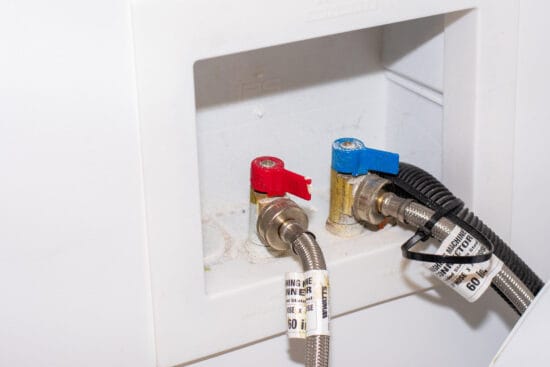When it comes to plumbing, hot and cold water valves are essential for regulating water flow and temperature throughout your home. These valves, found on faucets, showers, and various appliances, play a crucial role in daily comfort and safety. Over time, however, issues can arise that disrupt your water supply or even lead to more significant problems. Here, we explore the most common issues with hot and cold water valves and how to address them effectively.
1. Leaking Valves
One of the most common problems homeowners encounter with hot and cold water valves is leakage. Leaks can occur due to worn-out washers, loose connections, or corrosion inside the valve. Signs of a leaking valve include water pooling around the fixture or a constant dripping sound, even when the valve is turned off.
Solution: Tightening the valve connections can sometimes fix minor leaks. If the issue persists, a professional plumber can replace the washer or seal or upgrade to a new valve. For more extensive repairs, contacting a professional plumber ensures a thorough solution and prevents further damage.
2. Stiff or Jammed Valves

Over time, mineral buildup from hard water can make hot and cold water valves difficult to turn. This issue is common in areas with high mineral content in the water supply and can worsen with age. Rust or a worn-out valve mechanism can also contribute to this problem.
Solution: Regularly turning the valves to prevent stiffness is a simple preventative measure. If they become jammed, applying a lubricant designed for plumbing can help. However, if the valve remains stuck, having a professional plumber replace it may be necessary to avoid breakage..
3. Temperature Control Problems
When a hot or cold water valve fails to regulate temperature properly, it can result in sudden shifts from hot to cold water or inconsistent water temperature. This issue could stem from a malfunctioning mixing valve or debris blocking the valve.
Solution: Having a plumber professionally clean the valve can sometimes resolve the issue. If the valve is malfunctioning due to age or damage, having a new mixing valve professionally installed by a licensed plumber ensures reliable temperature control and prevents scalding or sudden cold blasts in the shower.
4. Valve Corrosion
Corrosion is a common problem, especially in older homes or with valves exposed to high humidity. Corrosion can damage the valve’s metal components, leading to leaks, stiffness, or complete failure.
Solution: Inspecting valves regularly for signs of rust or corrosion is essential. Applying anti-corrosive sprays can help prolong the life of the valve. If the valve shows significant signs of corrosion, replacement is the most effective solution to prevent further issues.
5. Water Hammer and Pressure Issues
A sudden, loud banging sound known as “water hammer” can occur when a valve closes too quickly, causing high water pressure. This pressure shock can damage pipes and valves over time.
Solution: Having a plumber install a water hammer arrestor can absorb the shock and prevent damage. Additionally, a plumber can ensure that the pressure in your home’s plumbing system is well-regulated to help mitigate this problem.
Tips for Maintaining Hot and Cold Water Valves
• Regular Inspection: Check your valves periodically for leaks, stiffness, and other issues.
• Use Softeners: If you live in a hard water area, consider using a water softener to reduce mineral buildup.
• Professional Servicing: Having a licensed plumber inspect your plumbing system annually can identify and prevent valve issues before they become serious.
When to Call Roto-Rooter
If you’re experiencing persistent issues with your hot and cold water valves, don’t hesitate to reach out for professional help. At Roto-Rooter, our team is equipped to handle everything from minor repairs to full valve replacements. With decades of experience, we can ensure your plumbing runs smoothly and efficiently, keeping your home safe and comfortable.